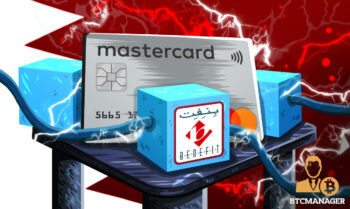
2020-3-20 17:08 |
Coinspeaker
Road to Efficient Cross-Border Payment Network
Cross-border transactions play a crucial role in the payment industry as the world economy is becoming progressively interconnected and global.
The global remittance market’s growth is a decent indicator of the above-mentioned. According to a recent report, the revenue of cross-border transactions could nearly double in 10 years – from 2014’s $144 billion to $280 billion in 2024.
However, despite the expected growth of cross-border payments, it’s hard to not see the flaws of the existing, traditional global remittance networks, such as the high costs of the transfers and slow processing times.
Due to the ever-increasing demands from businesses and customers alike, the cross-border payment industry has to go through major changes to satisfy the needs of the different groups of market participants.
In the upcoming sections, we’ll take a closer look at these issues while exploring the solutions to these problems that could shape the future landscape of cross-border transactions.
SMEs, Corporates, and End Users Have Their Own DemandsThe role of small and mid-size enterprises (SMEs) in the cross-border payment industry is increasing.
Despite the fact that e-commerce is a key channel for SMEs – and between 15 and 20% of e-commerce transactions – are already international. Small businesses have limited access to fast and affordable cross-border payments.
On the other hand, retail and corporate customers want international transactions to be adapted to their current needs, which includes the introduction of features like small-value one-click payments and faster options for cross-border payments.
From the end user’s point of view, the main concern of customers is how transparent and seamless international payments are. Also, when there are already options for real-time settlements of local payments, customers are wondering why cross-border transactions don’t possess the same features.
Customers within the international payments landscape have increasing demands for cross-border solutions that allow for reliable payment delivery, access to their locally preferred payment methods, as well as the transparent display of exchange rates to schedule their payments accordingly.
In general, there’s a shift from the bulk procession of transfers – an inefficient process that involves multiple financial institutions to clear global transactions – to solutions that offer high levels of transparency as well as speed and low-cost cross-border payments to users and businesses alike.
Road to More Efficient Cross-Border PaymentsPhoto: STICPAY
To satisfy the above-mentioned B2B and B2C demands and to solve the issues of existing cross-border payment solutions, the industry needs a standard protocol to efficiently move transfers across international borders.
In addition to the common protocol, the interaction and cooperation between financial institutions, companies, and payment service providers are required to build the future’s cross-border payment system.
The good news is that organizations in the payment industry are already working towards this goal, featuring over 80 implementations of the ISO 20022 messaging standard as the universal protocol in over 40 markets.
Furthermore, e-wallets, one of the fastest-growing payment trends of recent years that provides users an alternative way to transfer funds across borders, are surging in popularity among businesses and consumers alike.
Digital wallet solutions like STICPAY leverage their partnerships with local banks’ networks to build global payment networks that connect enterprises and consumers on an international level.
STICPAY, the award-winning UK-based fintech e-wallet solution, already has a significant presence on the Asian market – including Japan, China, Indonesia, the Philippines, and Thailand – which the company uses to connect customers of the region with European businesses in an efficient way.
As a result, both merchants and end-users of STICPAY can transfer funds across borders via an efficient, next-generation e-wallet service that offers a viable alternative to the flawed cross-border payment solutions that are existing on the general market.
STICPAY users can select from a wide variety of payment methods for deposits and withdrawals, including MasterCard, Visa, UnionPay China, international and local bank wires, as well as for cryptocurrencies, which helps consumers and businesses in transferring funds across borders in a convenient way.
Furthermore, with a global presence in 200+ countries, STICPAY offers a fast, cheap, and convenient way for its B2C customers to withdraw and spend their funds in the form of the STIC Card. Available in over 174 countries – in Europe and Asia, the STIC Card leverages UnionPay’s network to feature a debit card that suits the needs of users all over the world.
STICPAY is among the first e-wallet services that have adopted cryptocurrency. The users of the digital wallet service can deposit, transact, and withdraw digital assets like Bitcoin, Litecoin, Tether, and Ethereum anytime.
STICPAY has a built-in feature to convert crypto-to-fiat and fiat-to-crypto – with support for over 4 digital assets as well as 29+ fiat currencies – with live exchange rates and a competitive fee for conversion service.
Future of Cross-Border Payments Will Be Here SoonEventually, financial institutions, payment service providers, and organizations have to agree on creating and utilizing a global standard for cross-border transactions.
As a result, businesses and consumers alike will have access to an efficient global payment network that features a high level of transparency as well as fast and low-cost cross-border transactions to satisfy the needs of market participants.
Meanwhile, e-wallet services will continue to grow. The award-winning digital wallet service STICPAY already features an astonishing yearly growth of over 300% while providing a flawless global payment service to connect European businesses with customers of the Asian market in an efficient way.
If you are interested in using STICPAY’s award-winning payment service, we recommend checking out the fintech company’s website.
Road to Efficient Cross-Border Payment Network
origin »Bitcoin price in Telegram @btc_price_every_hour
Render Payment (RPM) на Currencies.ru
|
|











